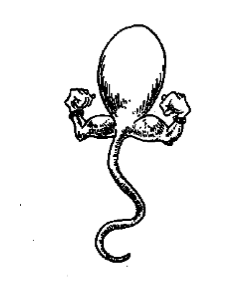It’s been a tough year for sports purists. The 2004 return of the Olympic Games to Greece, the hallowed land of their ancient birth in 776 B.C.E., didn’t exactly herald a return to a nobler age: sadly, the Athens extravaganza will be remembered more for its endless doping scandals, with more than twenty athletes failing urine tests, than for the glory of its record-setting performances. Even the International Olympic Committee’s nostalgic idea of holding the shot put contests inside the original stadium, where the Hellenic events were held for nearly twelve centuries, turned into a PR fiasco when the winner of the women’s gold medal, Russian Irina Korzhanenko, tested positive for anabolic steroids. (Of course, the ancient Greeks wouldn’t have allowed women to compete at the Olympic Games in the first place, or even be in the audience, but that’s another matter.)
Since that symbolic moment, the floodgates have opened, at least here in the United States, where the doping scandals have been piling up with monotonous regularity—in Major League Baseball, in the pro-cycling circuit, even in the Kentucky Derby. Such devious behavior seems a far cry from the classical Greek ideal of athletics, which aimed to elevate the human spirit while perfecting the body. Ancient sculptures like the Discus Thrower portrayed the Apollonic moral purity of sporting champions, who according to the Greek author Lucian had a sacred gift, and were even “equal to the gods themselves.” Despite this, the Greeks had their own equivalent of doping scandals, involving magic potions, charms, and spells—enchanted performance-enhancers that were impossible to regulate, without anything like our modern urine tests to keep contestants honest.
*
According to the third-century Greek author Philostratus, who penned a useful volume called Handbook for a Sports Coach, the two professional groups most actively involved in sorcery were athletes and prostitutes. Papyrus spell books included magical formulae to enhance strength, speed, luck, and virility—all of extreme interest to athletes, who could rack up vast personal fortunes in the hundreds of sports festivals held every summer around the Greek world. Fragmentary examples of these Greek magical tomes survive today; found in translation in the New York Public Library, they make edifying reading. Chanting one arcane spell to the sun god Helios seven times will pump up a wrestler’s strength and guarantee victory in the ring. The spell begins in Greek, then lapses into a string of obscure terms in Egyptian, which was regarded as the language of magic, since the gods were born by the Nile: “Rejoice with me, you who are set over the east wind and the world, for whom all the gods serve as bodyguards… you who rise from the abyss, you who...
You have reached your article limit
Sign up for a digital subscription and continue reading all new issues, plus our entire archives, for just $1.50/month.
Already a subscriber? Sign in





